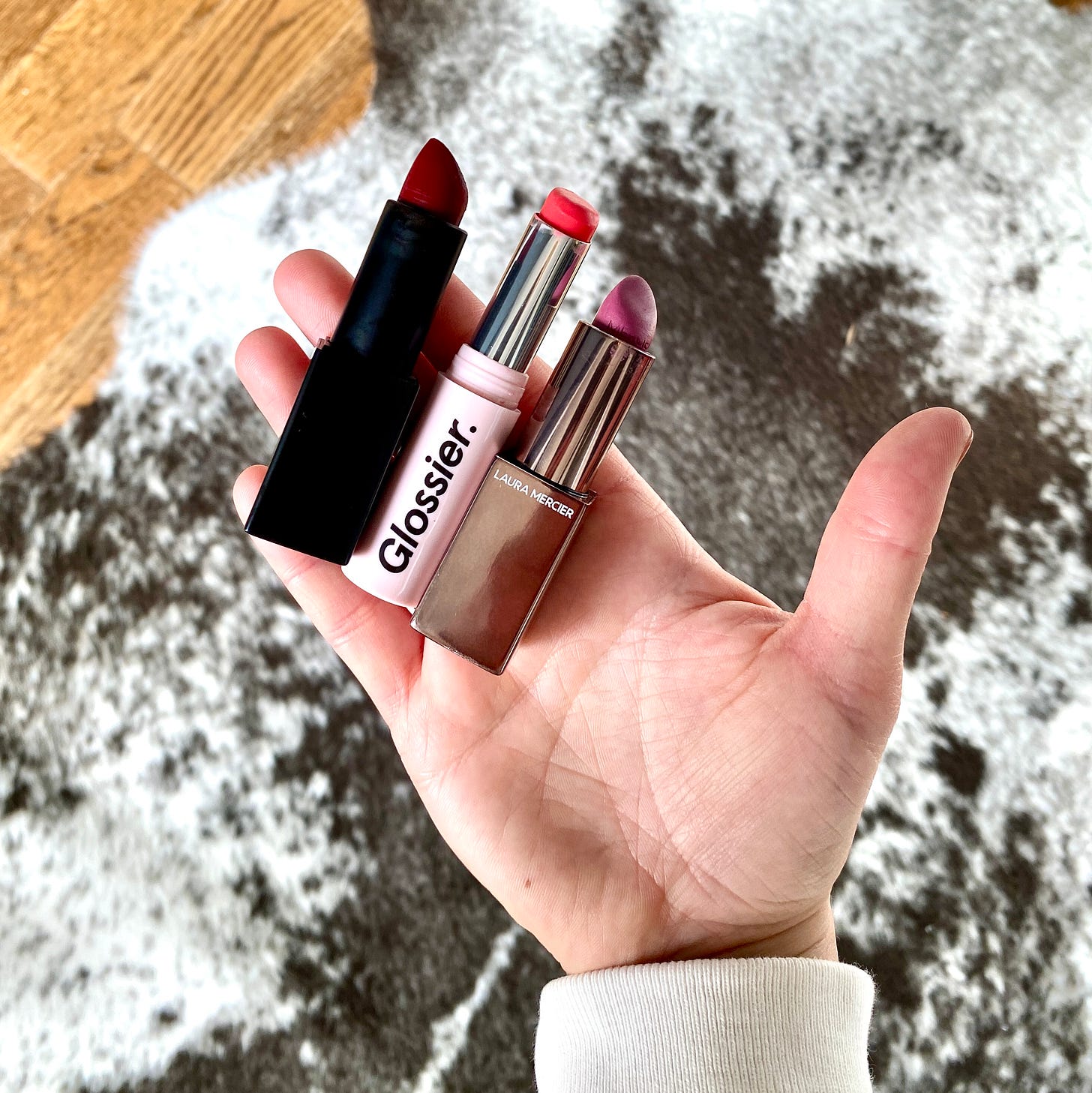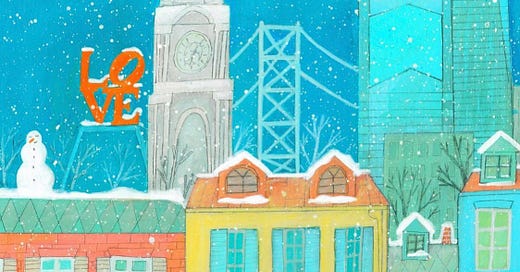The Eagles lost the Super Bowl. I am probably sadder than I am allowed to be, given the point in their season I started paying attention. But the way they lost stung—a blowout would’ve been better. This felt like we had it, we had it, then we lost it. I am just glad I only committed to watching the first quarter with our friends down the block, because by the time things started going south, I was spewing acid at my family from the comfort of our own home. It has been a tough couple of weeks. Paring any personal tribulation with the collapse of this game presented me with a textbook opportunity to display one of my most Philadelphian qualities: how poorly I lose. After all these years, that hasn’t changed.
I grew up in Philadelphia, New Jersey—not New York, New Jersey. People born and raised in the tri-state area know the difference. I have the street cred of any longtime Philadelphia fan. As a kid, I sat in the nosebleeds in the pouring rain to watch the Phillies lose to the Toronto Blue Jays in the World Series and lived my first true heartbreak when the Detroit Red Wings swept the Flyers in the Stanley Cup Finals right before my eyes.
Losing hurts. We are supposed to mourn, pull ourselves together, and stand ready to go again. But sports are not just sports. What’s at stake is much larger than the game being played.
Aside from religion, sports might provide the greatest sense of heritage and custom people may ever experience in their lives. Passion passes from generation to generation. My Pop-Pop drank from the Stanley Cup in 1974, and years later, welcomed me into his Flyers family. I wrote about his deep history with the team and our ritual of being smuggled into the games without tickets. But as he descended into macular degeneration and the dementia he would ultimately succumb to, Philadelphia sports became one of his final constants. They were a lifeline. As he got worse, it felt like my natural progression was to forfeit this part of my life. I read my essay at his funeral surrounded by the friends we sat in the stands with, like an end cap on my relationship with them. Maybe it was just too painful to imagine carrying on with something you did without the person you did it with.
When you don’t know who you are, it’s easy to move on to somewhere new. We tend to affix our sense of self to our sense of place. I went to college in Florida, where there was almost no one from Philadelphia—New York, sure, but most of my friends squabbled over turf wars between Miami and Tampa. I had no skin in their game. It was easier to throw myself into college sports as a Gator, especially when we were winning at everything. Winning felt so good. Heather from Philly became a blonde sorority girl in Abercrombie denim who said y’all with a straight face. That made sense for me at the time.
But the furthest I felt from Philly was much closer to home. New York City can consume your personality. Even slogging through law school and the Great Recession and my low-paying jobs and a deepening depression and grocery shopping in the pouring rain, I convinced myself it was the greatest place in the world. That’s the storyline that keeps you there for almost a decade like me, or maybe your whole life. I’m still not sure if it’s true. Sometimes an old block can bring me to tears and others I question whether I suffered from Stockholm syndrome. Either way, I deeply believed that what I was doing there I could not do anywhere else, and I projected my moral superiority on the people in my life who weren’t there. I never went as far as to root for the Giants, but if I stayed, I wouldn’t have been able to make any promises.
Six years ago, we moved to Central New Jersey. The 50-yard line. I didn’t know anyone, but I knew myself a lot better. When it was time to choose sides, it’s no coincidence I felt drawn to people who grew up close to where I did in the Philadelphia suburbs and down the shore. We don’t have to say much to establish a connection. As my good friend from Margate and I often acknowledge, we’re just cut from the same cloth. We are speaking an unspoken language.
Sports are as much a language. They provide a vehicle to communicate that you understand each other. Before the big game, I laughed at a meme that showed the many things “Go Birds” actually means for Philadelphians. It means a lot. It means I got you—I get who you are. We are direct, viewed as aggressive by some. We are scrappy. We are not quite humble but self-effacing, for sure. We are not the classiest but do right by people. And no one will ever call us fake—what you see is what you get.
The game started taking a turn for the worst, and my stepmom said something like “Well, Heather. Wouldn’t your Pop-Pop want you to hold out hope?” I said, “Nah. He’d say this was all bullshit, the refs called a bullshit holding flag, and he’d want to leave before the traffic.” It was savage but so true. I am a sore loser, but I’m proud of where it comes from.
Everyone is from somewhere. Even those of us who are lost along the way.
Taking interest again is bittersweet. I find it hard to open myself back up to this world without thinking about all that was there the first time, and the people I can no longer share it with.
Pop-Pop is gone. Mom-Mom is now, too. She was alive for the Super Bowl but declined in the days to follow. Maybe I sensed a deeper mourning to come, because the game felt much heavier than it should have been.
I was able to be there in the end. I sat by her side and said everything I wanted to say. She was the best grandma, the best friend an only child and grandchild could ever ask for. But I think Pop-Pop was waiting for his wife to console him. I have to believe that was the case.
When the chaplain came in, he told us about his conversation with Mom-Mom the week prior to her death. He grew up in Northeast Philly, three blocks from where my grandparents raised their family. He told us how they reminisced over street names and grade schools and fireworks over the neighborhood stadium. I sat and listened to him do the same with my mom and uncle. He was speaking an unspoken language. He was bringing them all back home.
Does a sport remind you of someone you love? Let me know: averagejoelle3@gmail.com.
The little things

Mom-Mom never wanted to be a glitzy grandma, but she always wore a full face of Clinique makeup. Blue eyeshadow, pink blush, and red lipstick were the staples she built around. Although I take a more subtle approach to my everyday color palate, I always lean into a statement lip. I believe I inherited this affinity from her, and I know for the rest of my life, I’ll think of her when I wear one.
Also
I read:
We All Forgot Pamela Anderson Was A Mom. She Never Did. – Romper
The Death of the Smart Shopper – The Atlantic
Smorgasbord – Molly Tolsky, Winner of the 2023 Pigeon Pages Essay Contest
My Child is in An Impossible Place, and I Am There With Her – The New York Times
I streamed:
An entire season of the History Channel’s survival competition, “Alone.” I’m not sure what I find soothing about ten people freezing and starving in the wilderness, but the heart wants what the heart wants. I’m also an armchair survivalist now, so that’ll be fun for dinner parties.
Your wins
This week, I’m claiming the extra win. I am here, I am grieving, I am vulnerable, but I am keeping it together. Thank you to the Our Tiny Rebellions community for allowing me to share these intimate moments with you and for all the friends (digital and IRL) who are giving me strength.





I am so sorry for your loss. ❤️